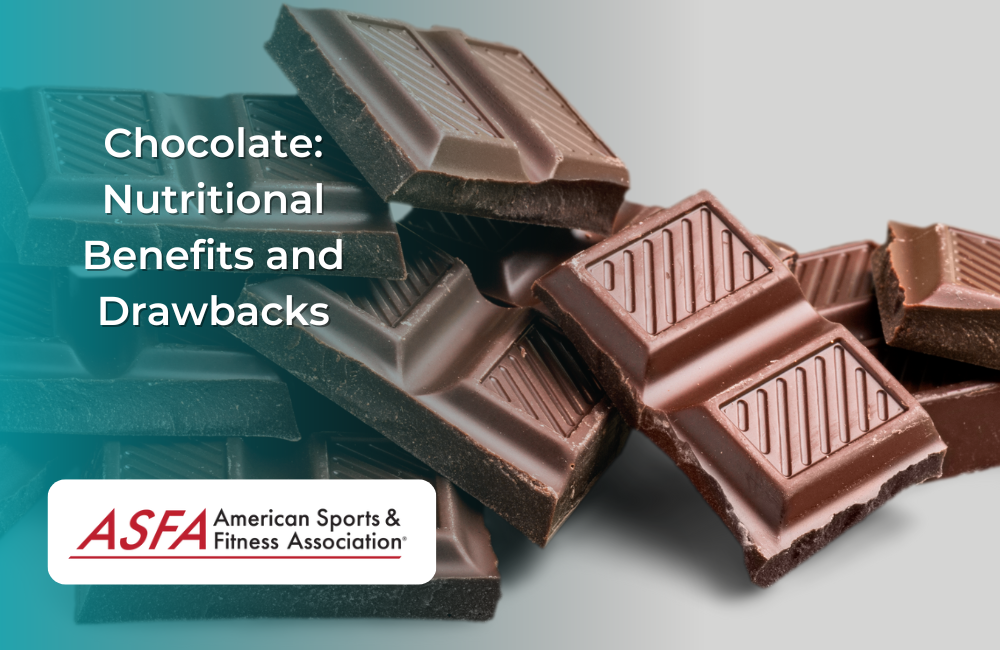Chocolate is a food that has both nutritional benefits and drawbacks. The main ingredients in chocolate are cocoa solids, cocoa butter and sugar. Cocoa solids are rich in antioxidants, which are believed to reduce the risk of developing heart disease, stroke, diabetes and age-related memory loss. Cocoa butter is good for your skin because it contains oleic, palmitic and stearic acids, which help prevent moisture loss in your skin. Sugar provides calories but does not have any other nutrients. Dark chocolate contains less sugar than milk chocolate or white chocolate so it has fewer calories than these other types. Milk chocolate has about 20 grams of sugar per ounce (28 grams) and dark chocolate has about 9 grams per ounce (12 grams). Chocolate can be part of a healthy diet when eaten in moderation
Chocolate is a food that has both nutritional benefits and drawbacks.
Chocolate is a food that has both nutritional benefits and drawbacks. The main ingredients in chocolate are cocoa solids, cocoa butter and sugar. Cocoa solids are rich in antioxidants, which are believed to reduce the risk of developing heart disease, stroke, diabetes and age-related memory loss. However if you eat too much chocolate it can lead to tooth decay or weight gain if eaten in excess as it contains high levels of fat and sugar so moderation is advised when consuming this tasty treat!
The main ingredients in chocolate are cocoa solids, cocoa butter and sugar.
The main ingredients in chocolate are cocoa solids, cocoa butter and sugar. Cocoa solids are the most important part of a chocolate bar because they give it its distinctive taste and texture. They're made by grinding up roasted cocoa beans into a powdery substance called "cocoa mass" or powder that contains all of the nutrients found in raw cacao beans (except for some fat). This includes magnesium, iron and copper as well as antioxidants such as epicatechin--a chemical compound with anti-inflammatory properties thought to help lower blood pressure levels over time by reducing inflammation throughout your body.
Cocoa butter is another key ingredient in most kinds of dark chocolates because it gives them their creamy texture without making them too hard to eat! It's also high in saturated fats but those aren't necessarily bad for you either since they may help reduce cholesterol levels if consumed within moderation (for example: one ounce per day). Finally there's sugar - which serves two purposes here: firstly providing sweetness; secondly helping prevent crystallization during processing so that we end up with smooth bars rather than crunchy ones...
Cocoa solids are rich in antioxidants, which are believed to reduce the risk of developing heart disease, stroke, diabetes and age-related memory loss.
Cocoa solids are rich in antioxidants, which are believed to reduce the risk of developing heart disease, stroke, diabetes and age-related memory loss. Antioxidants are also found in many foods including fruits and vegetables.
However there is no conclusive evidence that chocolate has any health benefits at all.
Cocoa butter is good for your skin because it contains oleic, palmitic and stearic acids, which help prevent moisture loss in your skin.
Cocoa butter is rich in fatty acids, which help improve skin elasticity and reduce the appearance of fine lines and wrinkles. It also helps prevent moisture loss in your skin.
If you're looking to get the most out of cocoa butter for your body, it's best to use it on its own or as part of a blend that includes other natural ingredients like shea butter and avocado oil. The latter two are particularly good choices because they contain vitamin E--an antioxidant that protects against sun damage--and linoleic acid (LA), an omega-6 fatty acid that may improve eczema symptoms when taken internally or applied topically
Sugar provides calories but does not have any other nutrients.
Sugar is a carbohydrate, and it is found naturally in many foods. Sugar provides calories but does not have any other nutrients. Therefore, sugar is not essential to the diet--you can get all the calories you need from fat, protein and carbohydrates (starches).
Sugar can be harmful in excess because it contains no vitamins or minerals and provides no fiber or other healthful components. Eating too much sugar may cause weight gain as well as tooth decay if you don't brush after eating sweets or refined grains such as white breads that break down into sugars during digestion
Dark chocolate contains less sugar than milk chocolate or white chocolate so it has fewer calories than these other types.
Dark chocolate contains less sugar and more cocoa solids than milk chocolate or white chocolate. It also has fewer calories, which makes it a healthier choice than either of these other types of chocolates.
Milk chocolate has about 20 grams of sugar per ounce (28 grams) and dark chocolate has about 9 grams per ounce (12 grams).
Milk chocolate has about 20 grams of sugar per ounce (28 grams). Dark chocolate has about 9 grams per ounce (12 grams). Milk chocolate is higher in sugar than white, but lower in calories and fat. Dark chocolate contains more antioxidants than milk and white chocolates, which makes it a better choice if you want the health benefits without all the extra sugar.
Chocolate can be part of a healthy diet when eaten in moderation.
Chocolate can be part of a healthy diet when eaten in moderation. Here are some tips for choosing the best chocolate for your diet:
- Look for dark chocolate that has at least 70% cocoa content and preferably 90% or above. The higher the percentage of cocoa, the lower the sugar content will be. Dark chocolate also contains more antioxidants than milk or white varieties do--but don't go overboard! You should still eat no more than 1 ounce per day (about 2 squares).
- Choose bars with as few ingredients as possible; avoid candy-coated versions because they tend to have extra sugar added on top of what's already there from making up most of their mass (e.g., M&Ms). If you're buying bars individually instead of bulk quantities from stores like Trader Joe's or Whole Foods Market where they sell by weight instead of piece count then make sure they're not too cheap either since those companies often use cheaper ingredients like hydrogenated oils which aren't good for health due to containing trans fats rather than natural ones found in coco oil itself which can lead toward cardiovascular problems later down line if consumed regularly over time without proper care taken beforehand such as eating less than half an hour before going out into sunlight because it inhibits vitamin D production during this period time frame where both nutrients are needed most urgently when outdoors
Conclusion
There are many studies showing the benefits of eating chocolate, but it is important to remember that all foods have their drawbacks. Chocolate contains sugar and calories so you should only eat it in moderation. If you're looking for more information on how much chocolate is safe to eat each day, check out our article on how many calories are in different types of chocolate.




